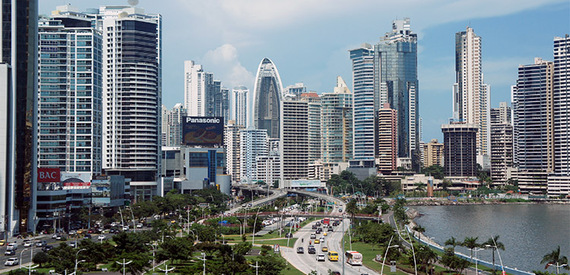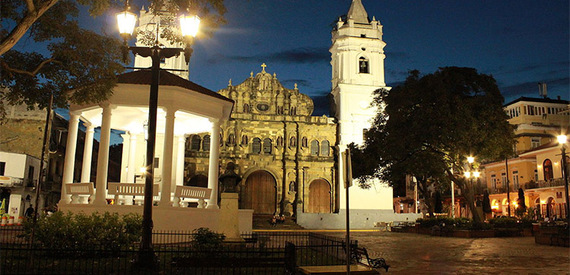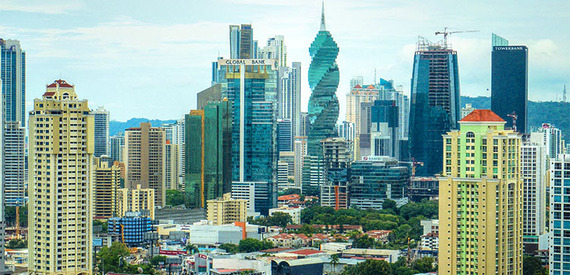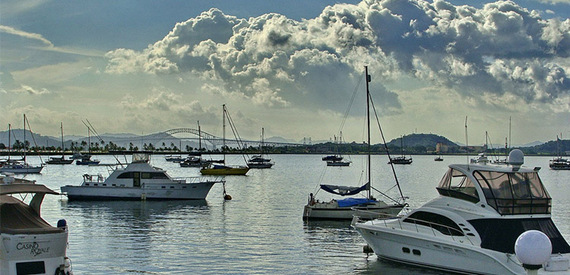In 2008, I took my leave from the publishing company where I'd been working for 23 years. I was 45-years-old and living in Paris. I spent the next three months exploring that city on foot, early to late each day, and got to know Paris well.
I also learned that three months is my limit for doing nothing, even in Paris, and returned home from a long walk one afternoon to announce to my husband that I wanted to start a business of my own.
"We'll need to leave Paris," he replied.
He didn't need to spell it out.
We knew from experience that France is no place to try to be an entrepreneur. This country does not value entrepreneurs, and running a business here is expensive and hassled. Labor law and the French perspective make every employer the enemy, and French taxes can take half of every dollar your business earns.
We were in the fortunate position at the time of being able to move anywhere, so, as much as we loved living in Paris, the question became:
If France is among the worst places in the world to invest in a business, where would be among the best?
By this time, my husband and I had managed businesses in eight countries. Based on that experience, I made a list of things important to the expat entrepreneur, as follows:
- Quality and cost of infrastructure, especially Internet and banking...
- Quality, availability, and cost of English-speaking labor...
- The country's approach to taxation...
- The current administration's perspective on foreign business and foreign investment...
- Residency and work permit options...
- Cost of doing business, especially office rent...
- Ease of setting up a company...
- Stability of the local currency (if other than the U.S. dollar)...
- Time zone relative to the business' intended marketplace...
- Local labor law...
- Local standard of living.
I considered the countries I knew from experience and others, too, in the context of these 11 questions, and one stood out--Panama.
The infrastructure in Panama City is the best in the region, in part thanks to the decades-long U.S. military presence here while the Americans ran the Panama Canal. Panama as a whole is a safe, stable, affordable country that uses the U.S. dollar as its currency, meaning no exchange-rate risk. The standard of living is comfortable, even international standard, if your budget stretches to allow for it.
Those things, though, are true for many other places that could also make sense for the would-be entrepreneur, including in Latin America but also in Europe and Asia.
Panama's trump card is the approach it takes to taxation, both personal and corporate. It's possible to live and run a business you own in Panama, paying little in taxes, even if you're an American. The list of places around the world where that is true is short.
Set yourself up properly, and you'll be liable for no corporate tax. Not in Panama and not anywhere else either (including, you may be wondering if you're an American, in the United States).
Again, this is a big part of the reason Panama got my attention when I was shopping the world map for a place to start my online business.
Panama is also one of the best places to base yourself if you want to make a living from consulting, travel writing, copywriting, or any other laptop-based profession you can think of.
The key is that your customers are outside Panama. In other words, as long as the revenues of your business aren't sourced in this country, you don't pay tax on them in this country. And, again, as long as you structure your corporation properly, you won't be liable for taxes from the revenues that flow through it anywhere else, either.
I'm speaking of legal and compliant strategies. It's not difficult to organize, but you need competent advice from a tax expert who understands both Panama's approach to taxing corporate income and the obligations to Uncle Sam of an American living and earning money in another country. Probably, really, you need two tax experts, as finding one who understands both sides of this tax picture will be near impossible.
The second reason I focused early on Panama and, in the end, chose it as the place to base my Internet publishing business is Panama City's labor pool.
Over the past dozen years, Panama City has evolved into a global melting pot. In addition to Panamanians and Americans, who've been a part of this landscape for more than 100 years, today's Panama City is home to a fast-growing expat population that includes Germans, French, British, Irish, Dutch, Australians, Kiwis, Venezuelans, Colombians, Hondurans, Costa Ricans, Guatemalans, and Nicaraguans, all of whom have migrated to Central America's most developed city in search of employment.
Regional migrants and investors have targeted Panama for many years. For the Nicaraguan or Venezuelan, for example, Panama is both a land of abundant opportunity and an obvious safe haven.
That localized labor pool was enough to get our attention back in 2008; however, something important happened four years after we moved to Panama that made Panama City an even more interesting place to be an employer.
In 2012, Panama's former President Ricardo Martinelli issued an Executive Order creating what's become known as this country's Friendly Nations visa program.
Overnight, Panama was targeted not only by opportunity-seekers from neighboring countries but as well by eager, educated, and English-speaking 20- and 30-somethings from North America and Europe.
Thanks to the Friendly Nations program, these enthusiastic youngsters, then and today, can obtain both easy residency and work permits. It's a uniquely turnkey program that makes it possible for anyone holding a passport from one of the 48 countries on the "friendly nations" list to be able to live and work legally in Panama almost immediately. Martinelli issued his decree in a creative attempt to provide more qualified labor for the dozens of foreign businesses setting up shop in his country.
Over the past four years since this visa option became available, we've hired staff from the United States, Canada, Ireland, the U.K., Germany, Australia, New Zealand, and Belgium, none of whom we would have been able to employ (legally) otherwise.
Eight years on in Panama, we've built a successful business to the point where my husband and I are preparing to back away from full-time operations. Starting next year, we'll begin splitting our time between Paris and Panama. We'll continue contributing to the business as we've always contributed, but sometimes now from a distance, counting on our nationally eclectic management team to keep the lights on in Panama City day-to-day.
Original Feature: Why Starting A Business In Panama Made Perfect Sense
Related Articles:
The Best Place For Starting An Online Business Is Panama
Earlier on Huff/Post50:







